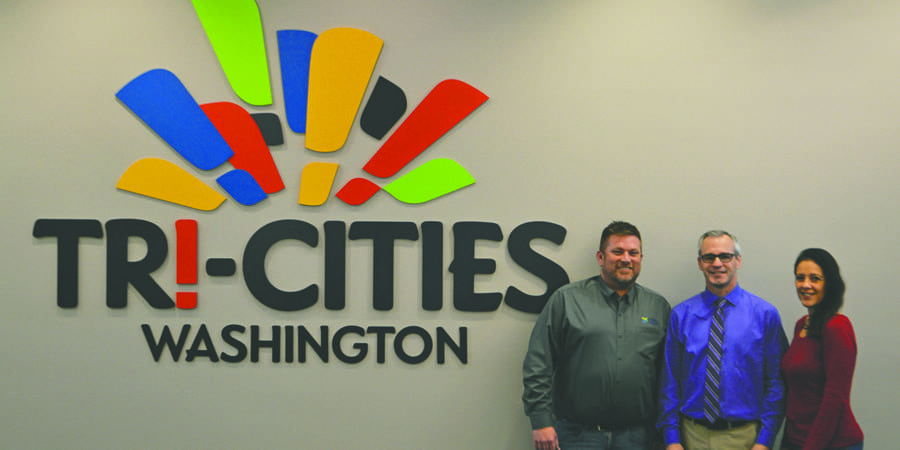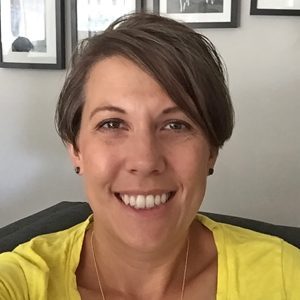
Home » Legislative council brings Tri-City goals to Olympia
Legislative council brings Tri-City goals to Olympia

January 16, 2018
A group of Tri-City business leaders will travel this month to the state Capitol to promote a regional economic development agenda.
The Tri-Cities Legislative Council will make its annual visit to Olympia on Jan. 25-26.
The group is made up of members from all of the area chambers of commerce, including the Pasco, West Richland Area, Tri-City Regional and Tri-Cities Hispanic, as well as Visit Tri-Cities and the Tri-City Development Council, or TRIDEC.
[blockquote quote="You have to adjust the agenda around how we can be most impactful for the community while we’re there." source="Diahann C. Howard, Port of Benton" align="right" max_width="300px"]
Its goal is to demonstrate a united front when promoting the Tri-Cities to elected leaders throughout the state, with the purpose of sharing resources and avoiding duplication of efforts.
“The goal is to try to gather around what are our community issues that are relevant to the Tri-Cities, as a whole, and to try to share those with the state as one voice. And there has to be complete consensus on the issues,” said Diahann C. Howard, director of economic development and governmental affairs for the Port of Benton, and a member of the legislative council.
Those who attend try to get as much face time with legislators as possible, whether it’s a sit-down meeting in their office, or speaking quickly to make a pitch in the hallway while a legislator hurries from one meeting to another.
The council hopes to have a larger delegation this year compared to 2017 when severe weather affected attendance. Closures of mountain passes and flight cancellations resulted in 10 people participating, compared to the 60 to 120 who typically attend annually.
“Some of the people who did make it over, you got more one-on-one time. A lot of times the meetings can be more effective that way,” said Troy Berglund, president of the legislative council and representative of the West Richland Chamber of Commerce.
The group also is joined in Olympia by members of the current class of Leadership Tri-Cities.
The council meets in the months leading up to the session to determine the region’s priorities.
“You have to adjust the agenda around how we can be most impactful for the community while we’re there,” Howard said.
This year’s strategy includes supporting the re-authorization of Local Revitalization Funding, or LRF.
The program authorizes cities and counties to create revitalization areas allowing certain increases in local sales and use, and property tax revenues generated within the revitalization area, additional money from other local public sources and a state contribution to be used for bond payments for financing local public improvements within the revitalization area.
The program has not been funded since 2011.
“We have been working for the last three years to reinstate LRF,” Howard said. She described the program as a “version of where you frontload investment using state and public dollars and with an idea that you’ll make that investment back on the property tax you’ll collect on the back end from the private investment.”
Howard calls LRD a “very attractive tool” to pay for infrastructure because Benton County doesn’t qualify for funding through the Community Economic Revitalization Board, or CERB, program.
“We don’t qualify because there’s a wage criteria you must meet, and in Benton County, it’s higher because they include Hanford federal jobs. So it’s hard for us to get a road in for a company that might need that for value-added ag with jobs at $14 or $17 an hour when we’ve got to be at $19.45 (an hour),” she said.
Even if Benton County met the wage qualifications, CERB is also inactive, just like LRF.
CERB funding was put on hold following the lack of a state biennium capital budget for 2017-19.
Howard said Sen. Sharon Brown, R-Kennewick, is interested in bringing these programs back. “She has been the lead and we have been working to support her efforts to try to re-establish Local Revitalization Financing, or a version of it,” Howard said.
The legislative council also is looking to the future with a goal of economic development and diversification.
The council sees an opportunity to shape future economic development that includes creating necessary infrastructure to keep drawing new businesses and jobs to the region as Hanford cleanup winds down.
Pointing to past experience with LRF, Howard said, “The city of Kennewick and the city of Richland were both successful in using that mechanism to finance development. For Kennewick, it was the Southridge area. For Richland, it was the north Richland area, which includes the research district and the city of Richland’s industrial park. We’ve had over $400 million of private sector development over the $11 million that was bonded.”
Those projects included the Ste. Michelle Wine Estates Washington State University Wine Science Center, The Lofts at Innovation Center housing, Preferred Freezer Services, the processing line expansion at Lamb Weston, and the new facility being built by SAI Steel.
“The intent of this is, you take an increment of the taxes from new construction and they go toward the infrastructure that allowed for the new construction to happen,” said Gary Ballew, director of economic development and marketing for the Port of Pasco, and a member of the legislative council. “So the infrastructure in Richland was some roads within the port (of Benton) that really supported the things going on in the research district, broadband and then some utilities and roads in the industrial park. You do that, and all of a sudden somebody comes in and builds a $100 million building.”
Ballew described it as “zero risk” to the state because Washington has no obligation to pay unless there is private development resulting in an increment of those taxes. If the new development doesn’t come, the risk is on local government to pay for what was built.
“Both in Southridge and in Richland, the growth has far exceeded what you need to pay for that, so the state got a lot more money back than what it paid out,” Ballew said.
This comes as no surprise to Howard, who has been a part of the council for the last decade, and was part of past successes that included support for a food processing center in Pasco and the drive to make WSU Tri-Cities a four-year institution.
She’s aware of the direction the community is headed and hopes to emphasize the need for greater certainty in permitting environmental reviews to keep the momentum going.
“It’s important to understand your growth, needs and demands, and I think that the reflection of both Southridge and Richland, showed the pent-up demand for the Tri-Cities,” she said.
The legislative council also sees education as a key component to the future of the community and wants to focus on growing and retaining jobs in STEAM fields: science, technology, engineering, arts and mathematics. This may come through the support of internships and apprenticeships in these fields that could develop into future employment.
The council believes this legacy of STEAM will encompass other industries, including agriculture, tourism and technology that will continue to positively impact the Tri-City economy.
The annual visit to Olympia begins Jan. 25 with a working lunch at the Washington Public Utilities District Association, followed by a “hill climb.”
The council holds an annual dinner reception which includes a host of goods created in the Tri-Cities, and concludes the following day with a breakfast meeting with Tri-City legislators before traveling back to the East Side.
“Each year, after we do our trip to Olympia, we re-evaluate what went well, tweaks we can make to improve,” Berglund said.
When council members return to the Tri-Cities, it’s back to work to prepare for the next state session.
“We always start the process by reaching out to our local legislators to see what their focus is going to be for the upcoming session and we support them where we can, where there’s consensus from our group. But we also reach out to all of the counties, cities, ports, all the local governments, to see if there’s anything else that they want on here, or topics they’re requesting so we make sure we’re being supportive, too, as long as there’s consensus,” Howard said.
Legislators convened Jan. 8 and the session is scheduled to end March 8.
Local News
KEYWORDS january 2018





